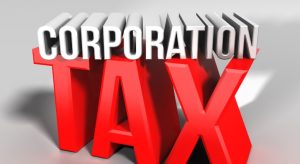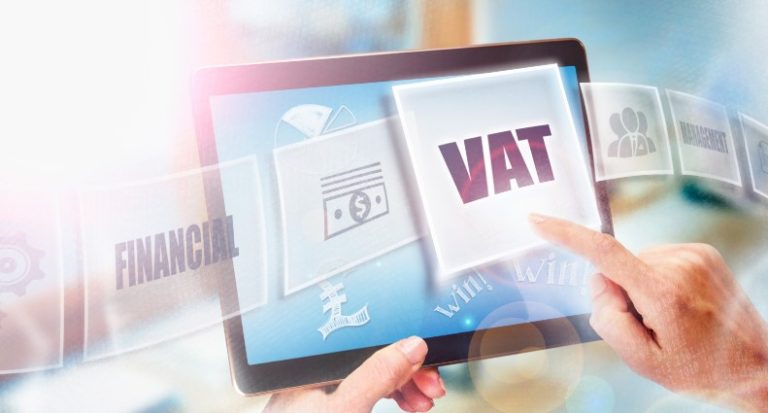Corporation tax is an essential element of running a business in the UK, yet it can often seem complex and daunting. Whether you’re a new business owner or looking to simplify your current understanding, this guide will break down what corporation tax is, how it works, and what your business needs to do to stay compliant.
What Is Corporation Tax?

Corporation tax is a tax paid by companies on their profits. It is a percentage of the profits your business makes during the accounting period. The rate of corporation tax can vary depending on the nature of its profits, and the specific tax policies in place during any given tax year.
In the UK, all companies, whether private limited company, public, or foreign-owned with UK activities, must pay corporation tax on their profits. The profits include the earnings from selling goods or services, as well as income from investments or assets.
Corporation tax is calculated after deducting allowable business expenses, including salaries, office supplies, rent, and other operational costs, from the total income. This means that businesses only pay tax on the amount that is left over.
How Corporation Tax Works?
Corporation tax is generally calculated as a percentage of a company’s taxable profits. The standard rate of corporation tax is currently set at 25% for businesses with profits over £250,000.
However, there is a lower rate for smaller businesses with profits under £50,000, which are taxed at 19%. Profits between £50,000 and £250,000 will be taxed at a tapered rate, depending on the exact amount of profit. This is called Marginal Rate Relief.
The rate at which your business is taxed depends on your profits for the financial year. It’s important to note that your accounting period for corporation tax may not align with the calendar year or tax year, it is based on the Company’s financial year.
Key Dates for Corporation Tax

Understanding the key dates for corporation tax is crucial for staying compliant. The most important dates to keep in mind are:
- The End of Your Accounting Period: The accounting period is the period for which you prepare financial statements. Corporation tax is due 9 months and 1 day after the end of this period. For example, if your accounting period ends on 31 December, your annual accounts must be filed by 30th September the following year with Companies House. If you owe any tax it must be paid by 9 months and a day after the end of your tax year. Your CT600 tax return must be received by HMRC within 12 months of the end of your accounting period.
- Tax Return Filing: Your company’s tax return must be submitted to HM Revenue and Customs (HMRC) by the deadline. Failure to submit on time can result in fines and penalties.
- Payment Due Date: The payment date for your corporation tax is 9 months and 1 day after the end of your accounting period. This gives you some time to calculate your tax liability, but being proactive is important.
For example, if your accounting period runs from 1 January to 31 December, you must file your accounts by 30th September to Companies House and for HMRC pay any outstanding corporation tax by 1 October of the following year and file your return by 31st December the following year.
Allowable Business Expenses
One way to reduce your corporation tax liability is by ensuring you claim all allowable business expenses. These are the costs that are necessary for your business operations and can be deducted from your total income before calculating the tax due.
Common allowable business expenses include:
- Salaries and wages: The money you pay your employees and yourself (if applicable).
- Rent and utilities: The cost of office or premises rental, electricity, heating, and other utilities.
- Office supplies: Things like stationery, computer equipment, and other necessary items.
- Professional services: Fees paid for legal, accounting, and other professional services that help run your business.
- Depreciation: If you own assets like machinery or vehicles, you can claim depreciation as an expense.
It’s important to keep detailed records of these expenses to ensure they are properly accounted for during your tax filing.
How to File Your Corporation Tax Return?

Filing a corporation tax return in the UK involves submitting a document called a Company Tax Return (CT600) to HMRC. This can be done online through the HMRC website. The process includes:
- Preparation of Accounts: Your business needs to prepare a set of accounts that accurately reflect your income and expenses. These should be based on your accounting period.
- Complete the CT600: This form will ask for information about your income, expenses, and any taxes due. It’s a good idea to work with an accountant or use CT600 tax software to help complete this process or use an accountant.
- Pay Corporation Tax: After submitting your return, you must ensure you pay your tax bill by the due date.
HMRC typically expects all corporation tax returns to be filed electronically, and this is often easier to manage through accounting software or with the help of an accountant.
What Happens If You Don’t Pay Corporation Tax?
Failing to pay your corporation tax on time can result in significant penalties. HMRC is strict about deadlines and can charge interest on late payments, as well as apply penalties for missed or incorrect returns. The penalties increase the longer you delay filing and paying your taxes.
It’s also important to note that businesses with overdue corporation tax payments can face legal action, including enforcement measures like asset seizure. Ensuring timely and accurate payment is essential for maintaining good standing with HMRC.
Conclusion
Understanding corporation tax doesn’t have to be complicated. By ensuring you know your deadlines, claim all allowable expenses, and file your return on time, you can avoid the stress of non-compliance.
Corporation tax may seem like a complex topic at first, but with the right knowledge and software and careful management, it can become a manageable part of running your business.




